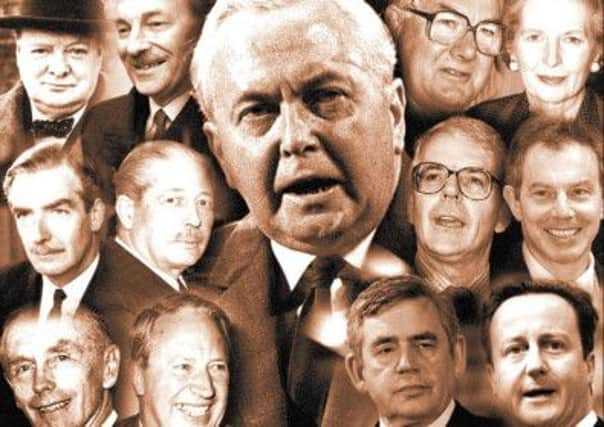Bernard Ingham: Who are Britain’s best and worst post-war leaders?


The first Yorkshire PM was the Earl of Rockingham, the ultra-landed 18th century gent of Wentworth Woodhouse. The second was Herbert Asquith, a barrister and socialite from the professional class who, like Wilson, was born in Huddersfield.
What, I wonder, is – or was – in Huddersfield’s water or that drunk by members of the Congregational Church into which both were born?
Advertisement
Hide AdAdvertisement
Hide AdThe three had one thing in common: they were reformers. In their different ways, they left their mark on the nation.
Asquith’s claim to fame lies in establishing the foundations for the welfare state with the 1911 National Insurance Act, ending the Lords’ veto on financial legislation and securing Royal Assent for the Irish Home Rule Bill.
But his love of the country house set, bridge and women and his lackadaisical approach to prosecuting World War One led to his ousting by David Lloyd George in 1916 – his annus horribilis when he lost his eldest son on the Somme. The Liberals never recovered.
Charles Watson Wentworth was no orator in the Whig firmament but he had guts. At 15, as a colonel in his father’s Pontefract regiment, he rode in winter to Carlisle to confront the Jacobite uprising. He was a liberal employer and landlord who pursued liberal causes. In 14 weeks in 1782 before his death from ‘flu in the second of two brief periods as PM separated by 16 years, he secured negotiations with the American colonists, legislative independence for the Irish Parliament and limited the King’s patronage. Edmund Burke wrote of him: “He did not live for himself. He far exceeded all other statesmen in the art of drawing together…”
Advertisement
Hide AdAdvertisement
Hide AdHarold Wilson was the first of four Prime Ministers under whom I worked as a civil servant. It was a time of intrigue and often chaos as Wilson struggled to keep “the sick man of Europe” ticking over amid rampant unions.
The hysteria surrounding Barbara Castle’s brave attempt to complement union power with responsibility with the In Place of Strife White Paper had to be experienced to be believed. I was her press secretary in the Department of Employment. Wilson and Castle were defeated in Cabinet by Jim Callaghan. It is a matter of debate whether Wilson would have won the 1970 election if Castle had prevailed.
In two periods as PM Wilson wore himself out and into early dementia. His statue outside Huddersfield’s magnificent recognises a man who kept us out of the Vietnam war, left us the Open University and a more liberal, or, some would say, permissive society. So where does Wilson stand in the post-war panoply?
There are five PMs of little account – Anthony Eden, who lied over the invasion of Suez; Jim Callaghan whose reward for frustrating Castle’s reforms was the Winter of Discontent; Edward Heath for leading us into Europe on a false prospectus; and Tony Blair and Gordon Brown for Iraq and also their disastrous economic management and corruption of the political process.
Advertisement
Hide AdAdvertisement
Hide AdWinston Churchill was seriously failing physically and mentally in the early 1950s after his wartime heroics, but there was more than met the eye to the skeletal Sir Alec Douglas-Home, who renounced his 14th Earl of Home title to lead the nation. As a caretaker after Harold Macmillan’s resignation, he nearly kept Wilson out of No 10 in 1964.
History will be kinder to John Major who, with Kenneth Clarke, restored the British economy after we were fortuitously forced out of the then EU monetary system in 1992.
Macmillan was the able last of the relaxed “toffs” of a gentler political age and the first Prime Minister – “Supermac” – to exploit the new-fangled television.
This leaves David Cameron, on whom the jury is still out, Clement Attlee and Margaret Thatcher.
Advertisement
Hide AdAdvertisement
Hide AdBoth Attlee and Thatcher changed the nature of Britain. They were similar souls – not entirely of the world in which they lived – but direct, focused and brave.
Attlee inherited the bankruptcy of war; Thatcher that of the union-wrecked politico-economic “consensus” established in 1945 which she summarily ended. I’m prejudiced, but the greatest of these is Thatcher. For sheer political acumen Wilson comes fourth behind Attlee and Macmillan. His memory is besmirched by unions who have learned nothing in 50 years.